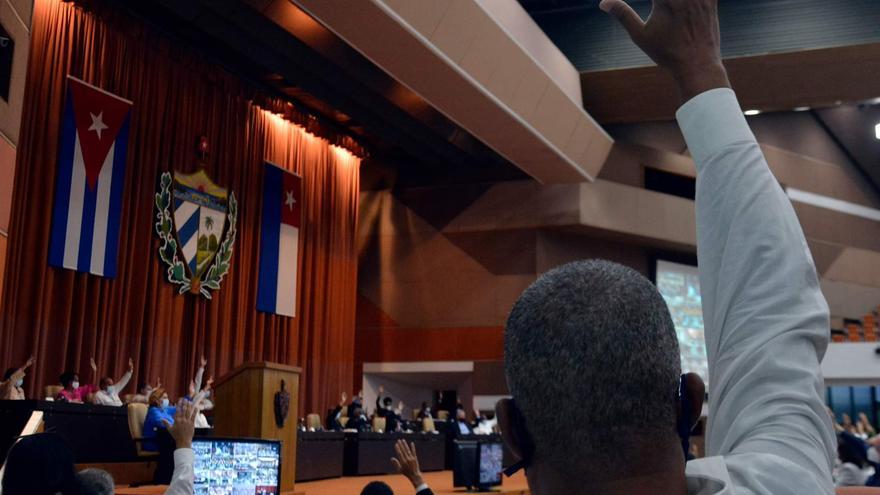
![]() 14ymedio, Reinaldo Escobar, Havana, 29 October 2020 — When a dictatorship seeks to legitimize itself, it needs to formally establish mechanisms that give a democratic appearance. Cuba’s National Assembly of People’s Power (ANPP) is an eloquent example, where the requirements that a Parliament must meet in a totalitarian system are exemplified.
14ymedio, Reinaldo Escobar, Havana, 29 October 2020 — When a dictatorship seeks to legitimize itself, it needs to formally establish mechanisms that give a democratic appearance. Cuba’s National Assembly of People’s Power (ANPP) is an eloquent example, where the requirements that a Parliament must meet in a totalitarian system are exemplified.
The first of all the requirements is to guarantee absolute loyalty which is reflected in practice with votes with an absolute majority, if not unanimous, in favor of government proposals. The second is to show a diversity based on factors other than plurality of thought, that is, a strict balance between genders, races, age groups and professional profiles, but without different political tendencies.
In recent days, prior to the Fifth Ordinary Period of Sessions of the IX Legislature, it was announced that 20 citizens had taken the oath that enshrines them as new deputies. Three of them are first secretaries of the Communist Party in their respective provinces, one is the first secretary of the National Committee of the Union of Young Communists, eight hold the position of provincial governor, five are ministers, and the other three hold responsibilities in intermediate entities. All are members of the Cuban Communist Party (PCC) or the The Young Communist League (UJC).
It is striking that we have not been informed about who these new deputies replace, because according to the data that appear on the ANPP page (which is not updated with due frequency) there were only five vacant positions, located in Candelaria, Jagüey Grande, and the provincial capital municipalities of Holguín, Cienfuegos and Pinar del Río. In the remaining 15 cases there is no information. For example, for Ricardo Concepción Rodríguez, current provincial governor of Artemisa, who is proposed by the municipality of San Cristóbal to occupy a position in Parliament, one of the four from that town who today represent their voters as deputies.
The most recent data that can be referred to to clarify this opacity are dated October 7, 2019, when it was reported that until that moment 22 deputies had ceased to serve and 16 new ones had been elected.
Readers may rightly wonder who cares about that information. Who in the Pinar del Río municipality of Los Palacios is going to feel represented in parliament by Martha Elena Feitó, current Minister of Labor and Social Security? How many voters in the Camagüey municipality of Florida are even informed that Nicolás Liván, Minister of Energy and Mines, has the obligation to speak for them in the National Assembly?
Just a few hours ago Parliament passed four new laws that no one had demanded. To distract attention, they engaged in the performance of suggesting the possibility that the President of the Republic could be re-elected indefinitely, but it was all a publicity stunt to provoke the audience of viewers.
____________
COLLABORATE WITH OUR WORK: The 14ymedio team is committed to practicing serious journalism that reflects Cuba’s reality in all its depth. Thank you for joining us on this long journey. We invite you to continue supporting us by becoming a member of 14ymedio now. Together we can continue transforming journalism in Cuba.
